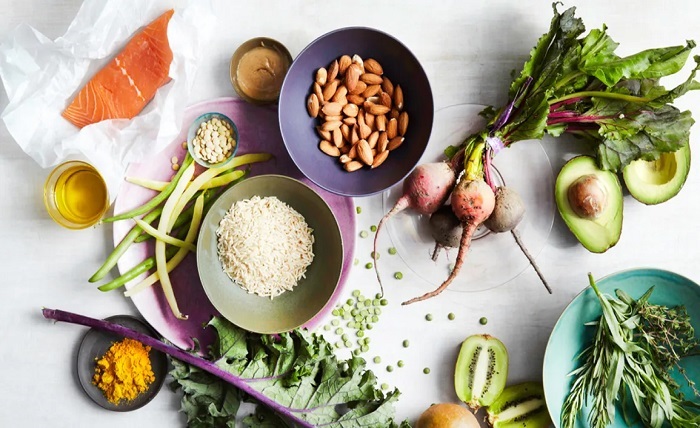In today’s fast-paced world, it can be easy to rely on quick, convenient meals that often lack the nutrients our bodies need to thrive. But with a little bit of planning and knowledge, you can nourish your body by choosing foods that are both delicious and packed with health benefits. Whether you want to boost your energy, support your immune system, or maintain a healthy weight, adding nutrient-rich foods to your plate is the key to a healthier lifestyle. Here are some of the top healthy foods you should consider incorporating into your diet.
1. Leafy Greens: The Ultimate Nutrient Powerhouse
Leafy greens such as spinach, kale, arugula, and Swiss chard rank among the most nutrient-dense foods you can find, especially when sourced through sustainable agriculture practices. These vibrant vegetables are rich in vitamins A, C, and K, along with essential minerals like calcium and iron. They contribute significantly to bone health, enhance immunity, and aid digestion. Additionally, their high antioxidant content helps combat inflammation and reduce the risk of chronic diseases.
To integrate leafy greens into your daily meals, consider blending them into smoothies, tossing them in salads, or sautéing them as a nutritious side dish. You can also replace traditional lettuce in sandwiches and wraps with more nutrient-rich options like kale or spinach for a delicious twist. By choosing sustainably grown greens, you’re not only nourishing your body but also supporting eco-friendly farming practices.
2. Berries: Nature’s Sweet Antioxidant Source
Berries, such as blueberries, strawberries, raspberries, and blackberries, are not only delicious but also incredibly good for your health. They are rich in antioxidants, particularly vitamin C, which helps to combat oxidative stress and reduce inflammation. Berries are also high in fiber, promoting healthy digestion and supporting heart health.
You can easily add berries to your diet by tossing them into your morning yogurt or oatmeal, blending them into smoothies, or simply enjoying them as a sweet, low-calorie snack.
3. Fatty Fish: Heart-Healthy Omega-3s
Fatty fish, such as salmon, mackerel, sardines, and trout, are excellent sources of omega-3 fatty acids. Omega-3s are essential for heart health, reducing the risk of cardiovascular disease by lowering blood pressure, reducing inflammation, and improving cholesterol levels. Fatty fish is also a great source of high-quality protein and vitamin D, supporting muscle function and bone health.
To reap the benefits of fatty fish, aim to include it in your meals at least twice a week. Grilled, baked, or even poached, these fish are versatile and can be added to salads, grain bowls, or served alongside steamed vegetables.
4. Nuts and Seeds: Nutrient-Dense Energy Boosters
Nuts and seeds are small but mighty when it comes to nutrient density. Almonds, walnuts, chia seeds, and flaxseeds are packed with healthy fats, fiber, protein, and a variety of essential vitamins and minerals. Nuts and seeds are known to support heart health, and brain function, and even aid in weight management by promoting feelings of fullness.
A handful of nuts or a sprinkle of seeds can be added to salads, yogurt, oatmeal, or smoothies for an easy and delicious nutrient boost. Just be mindful of portion sizes, as nuts are calorie-dense and can contribute to weight gain if consumed in large amounts.
5. Whole Grains: Fuel for Your Day
Unlike refined grains, whole grains such as quinoa, brown rice, oats, and barley retain all parts of the grain kernel, making them higher in fiber, vitamins, and minerals. Whole grains are excellent for digestive health, helping to regulate blood sugar levels and keeping you feeling full for longer periods. They are also associated with a lower risk of heart disease, diabetes, and certain cancers.
Switching to whole grains can be as simple as swapping out white rice for brown rice, using whole-grain bread, or incorporating ancient grains like quinoa into your meals. Whole grains can be enjoyed in salads, soups, or as a hearty side dish to your favorite protein.
6. Legumes: Plant-Based Protein Power
Legumes, such as lentils, chickpeas, black beans, and peas, are a fantastic source of plant-based protein, fiber, and essential nutrients like iron, magnesium, and folate. They are particularly beneficial for vegetarians and vegans, offering a hearty and nutritious alternative to animal-based proteins. Legumes also help regulate blood sugar levels and improve digestive health due to their high fiber content.
Legumes can be used in a variety of dishes, from soups and stews to salads and grain bowls. You can also blend them into dips, such as hummus, or add them to wraps and tacos for a protein-rich meal.
7. Avocados: The Healthy Fat Superstar
Avocados are unique in the fruit world for being rich in healthy monounsaturated fats, which are beneficial for heart health. They are also high in fiber, potassium, and vitamins C, E, and B-6. Regular consumption of avocados is linked to improved cholesterol levels, better digestion, and enhanced nutrient absorption from other foods.
Add avocado to your diet by spreading it on toast, slicing it into salads, or blending it into smoothies and dressings. Its creamy texture makes it a versatile and healthy addition to a variety of meals.
In Conclusion
Nourishing your body with healthy, nutrient-dense foods doesn’t have to be complicated. By incorporating a variety of leafy greens, berries, fatty fish, nuts, seeds, whole grains, legumes, and avocados into your meals, you can provide your body with the essential vitamins, minerals, and nutrients it needs to thrive. Making these healthy choices will not only improve your overall well-being but also pave the way for a more energetic and balanced lifestyle.






